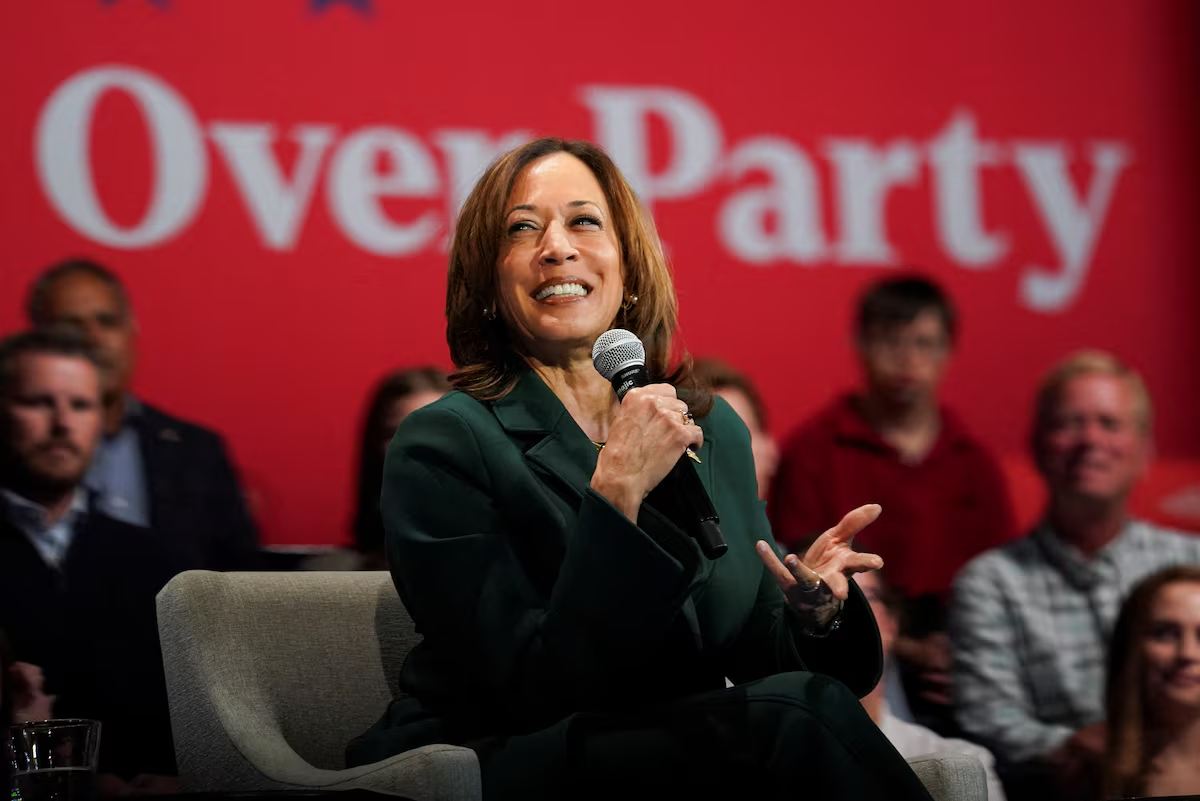Vice President Kamala Harris holds a narrow lead over former President Donald Trump in the latest Reuters/Ipsos poll, though widespread voter dissatisfaction with the economy and immigration could shape the outcome of November’s presidential election.

The six-day poll, which concluded Monday, shows Harris leading Trump 46% to 43%, virtually unchanged from her 45% to 42% advantage in the previous week’s survey. When using unrounded figures, Harris’ lead shrinks to just two percentage points, within the poll’s margin of error of two percentage points.
The survey of 4,129 U.S. adults, including 3,481 registered voters, reveals deep voter concerns about the nation’s direction. Seventy percent of registered voters believe their cost of living is on the wrong track, while 60% express pessimism about the economy’s direction. Immigration policy draws similar criticism, with 65% saying the country is heading the wrong way.
Trump holds significant advantages on these key issues. Voters prefer his approach to the economy by eight points (46% to 38%) and immigration by thirteen points (48% to 35%). Immigration ranks as voters’ top priority for the next president’s first 100 days, with 35% citing it as the most crucial issue, followed by income inequality at 11%, and healthcare and taxes each at 10%.
Harris, however, leads substantially on other issues. She outpaces Trump by seven points (42% to 35%) on addressing political extremism and threats to democracy, while also holding advantages on abortion and healthcare policy.

The poll suggests heightened voter engagement compared to 2020, particularly among Democrats. Seventy-nine percent of registered voters declare themselves “completely certain” to vote, including 87% of Democrats and 84% of Republicans. This marks an increase from October 2020, when only 74% of Democrats and 79% of Republicans expressed such certainty.
Among the 3,307 respondents considered most likely to vote, Harris’ lead extends slightly to 48% versus Trump’s 45%.
The race’s dynamics shifted dramatically after President Joe Biden ended his reelection bid in July following a poor debate performance against Trump in June. Trump had been widely considered the frontrunner, benefiting from voter frustration with inflation under the Biden administration, though price increases have moderated in recent months.
Political analysts caution that Harris’ national lead might not translate to victory in the Electoral College system, which determines the presidency through state-by-state results. Trump won the 2016 election despite losing the popular vote to Hillary Clinton by two percentage points, and current polling shows Harris and Trump running neck-and-neck in seven crucial battleground states.
The electorate remains roughly divided into thirds between Democrats, Republicans, and independents or third-party supporters, according to Pew Research estimates. With voter turnout historically around two-thirds of eligible adults – though 2020 saw the highest participation in over a century – both campaigns’ ability to mobilize supporters could prove decisive.
The Reuters/Ipsos poll was conducted online nationwide, employing a methodology that has accurately tracked major political trends in recent years.
a Reuters story



